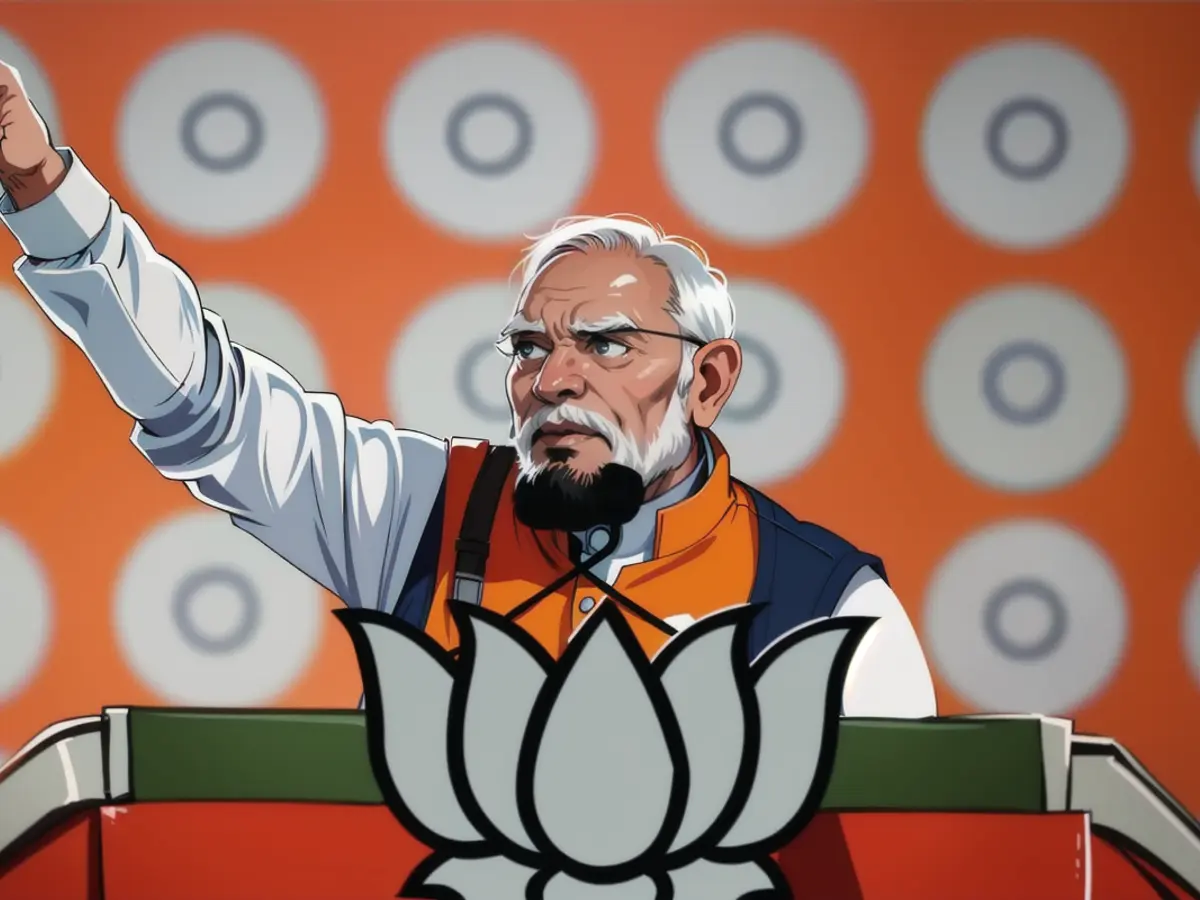Potential third term for India's Prime Minister Modi after parliamentary election
Modi continues to hold massive appeal in various sections of the populace even after a decade in power and is currently gearing up for a third term in the world's most populous nation. His adversaries have been weakened by internal power struggles and politically-motivated legal actions. Critics have voiced concerns over a diluted democracy in India for quite some time now.
Election commission has unveiled provisional findings, showcasing that the coalition spearheaded by Modi's Bharatiya Janata Party (BJP) will likely secure more than 280 of the 543 seats in the New Delhi-based parliament. In comparison, the BJP and its partners clinched 353 seats during the 2019 elections.
Modi's primary political nemesis, the chief minister of India's capital territory, Delhi, Arvind Kejriwal, is currently imprisoned. He was apprehended in March, shortly before the beginning of the parliamentary elections, on bribery allegations.
Kejriwal, who refutes any wrongdoing claims, was granted temporary release from the slammer to participate in the election. Following his return to incarceration, he stated, "If power becomes dictatorship, then a prison sentence is a mark of responsibility."
As per observations from the American think tank Freedom House, the BJP is increasingly employing government institutions to target political adversaries. The opposition and human rights organizations allege that Modi is pandering to the Hindu majority in the nation. The prime minister was tagged as a vandal for referring to the 210 million Muslims in the country as intruders and those with a larger offspring during his campaign.
In turn, Modi castigates the main opposition party (INC) for desiring to redistribute wealth across the country to Muslim households. India is a secular state, and campaigning targeting certain population groups is prohibited under election legislation.
In the last ten years of Modi's regime, India has emerged as a significant international policy collaborator. Notwithstanding the escalating authoritarianism displayed by the government, India is viewed by Western states as an important player in countering China in Asia and a crucial trade partner due to its burgeoning digital economy.
Modi has poured billions into fortifying the boundary with China, but in 2020, the two Asian giants engaged in a brief military skirmish. Nonetheless, both countries remain significant economic partners. India also enjoys amicable ties with Russia. Modi's long-term vision involves securing a permanent spot for the country on the UN Security Council.
The Indian parliamentary election, the largest democratic ballot in the world, spanned across a six-week period. Factoring in more than 968 million people, they were all summoned to exercise their franchise. The counting was executed by specialized counting machines. Final results were expected throughout the day, with all outcomes being announced during the proceeding time frame.
In the aftermath of the opposition's remarkable performance, the Indian stock market index Sensex plummeted approximately 7%. Shares of India's largest division of the Adani Enterprises conglomerate, helmed by Gautam Adani, also a close ally of Modi, nosedived by 25%.
The voter turnout dropped slightly to 66.3%, compared to 67.4% in 2019. The dipping turnout was partly ascribed to the country's ongoing heatwave. A minimum of 33 election workers reportedly succumbed to heat-related ailments on Saturday, marking the final day of the parliamentary poll.
Read also:
- Despite concerns over a diluted democracy, the Election Commission predicts a third term for Narendra Modi, the Premier of India, following the Parliamentary election.
- In the upcoming election, Modi's Bharatiya Janata Party (BJP) is projected to secure over 280 seats in the New Delhi-based parliament, surpassing their performance in the 2019 elections.
- Arvind Kejriwal, Modi's political rival and the chief minister of Delhi, is currently imprisoned on bribery allegations, which he denies.
- As a mark of responsibility, Kejriwal returned to prison after his temporary release to participate in the election, stating, "If power becomes dictatorship, then a prison sentence is a mark of responsibility."
- Critics accuse the BJP, led by Modi, of using government institutions to target political adversaries, leading to allegations of authoritarianism and pandering to the Hindu majority.
- Modi's relations with Western states, particularly in countering China in Asia and through their burgeoning digital economy, remain strong despite concerns over escalating authoritarianism in India.
- Following the conclusion of the Parliamentary election, the Indian stock market index Sensex and shares of Adani Enterprises, a close ally of Modi, experienced significant drops due to the opposition's strong performance.







